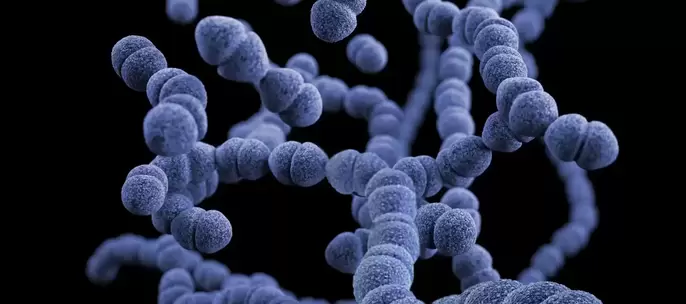The Fact:
You may not know that the GUT health industry market size is about $44.4 billion in 2022 and is expected to rise by $89.9 billion in 2030. Additionally, 52% more people are aware of their gut health in 2022 than any other year.
Are you tired of dealing with digestive issues that keep you from enjoying life to the fullest? Or, may concern how to healing gut health naturally? If so, you’re not alone. Many people struggle with gut problems that can impact their overall well-being. But the good news is that there are natural ways to healing your gut and restore balance to your digestive system.
Our digestive system plays a crucial role in maintaining overall health and well-being. A healthy gut can contribute to improved digestion, enhanced nutrient absorption, and even a strengthened immune system.

Gut health issues are becoming more common, with symptoms such as bloating, IBS, inflammation, reflux and constipation affecting many people and impacting their quality of life.
Table of Contents
ToggleImportance of Gut Health
It is essential to recognize the significance of a healthy gut. Your gut, often referred to as the “second brain,” plays a vital role in your overall health. It’s responsible for digesting food, absorbing nutrients, and supporting your immune system. When your gut is out of balance, it can lead to various issues such as bloating, constipation, diarrhoea, and even affect your mood and energy levels.
Understanding the Gut Microbiome
The gut microbiome is a diverse community of bacteria, viruses, and fungi that reside in the gastrointestinal tract. A balanced microbiome is necessary for proper digestion and nutrient absorption.

Dr Jane Miller, Gastroenterologist
“Maintaining a balanced gut microbiome is crucial for digestive health. Incorporating a variety of fibre-rich foods, fermented products, and staying hydrated can support the growth of beneficial bacteria. Also, managing stress through relaxation techniques is key for a healthy gut.”
How do gut troubles start?
In modern cultures, we’ve all had moments in life where we’ve done some damage to our gut. Most likely, there’s been a time when you made poor food choices, had a chronic illness, took pharmaceutical medicines, experienced surgery or childbirth, used birth control pills, had chronic indigestion for any reason, suffered serious emotional issues, or felt under par.
In these moments, your gut likely suffered an imbalance in necessary enzymes and bacteria. Our digestion, like all health processes, is influenced by physical as well as emotional factors.
You might say you have “butterflies in the stomach” or that you “feel things in your gut.” The truth is, the gut is our vital connection between brain and body, lifestyle and energy, desire and action.
Signs of an Unhealthy Gut
Symptoms like bloating, gas, diarrhoea, and constipation can indicate an imbalance in the gut. Skin issues, fatigue, and frequent infections may also be linked to gut health.

Another thing you can do is take a gut health test. These tests can provide insight into the composition of your gut microbiome and help you identify any imbalances or potential issues.
Leaky Gut
Most people at one time or another have experienced “leaky gut”––which is a tear in the fragile intestinal wall that allows poisons to enter the bloodstream instead of being eliminated through the colon.
Healing Gut Health-Friendly Diet
Choosing Fiber-Rich Foods
Fibre promotes healthy digestion by adding bulk to the stool and supporting regular bowel movements. Fruits like berries, avocado, banana, carrots, vegetables, oats, and barley.
Embracing Probiotics
Probiotic-rich foods like yogurt and kefir introduce beneficial bacteria to the gut.
Including Prebiotic Foods
Prebiotics, found in foods like garlic and onions, provide nourishment for good gut bacteria.
Managing Sugar and Processed Foods
These can disrupt the balance of gut bacteria and lead to inflammation. It is advisable by all nutritionists and health professionals- consume less or better avoid sugar and processed foods in daily life.
Staying Hydrated for Gut Health
There is no doubt that water is an essential part of lifestyle. Adequate water intake is fundamental for digestion and the transport of nutrients. It is important to make our aim for at least 8 glasses of water a day.

Stress Management and Impact
Practising Mindfulness: Stress negatively affects the gut. Mindful practices like meditation can alleviate stress and improve digestion.
Regular Exercise: Physical activity supports a healthy gut by promoting efficient digestion and reducing stress.
Quality Sleep and Gut Restoration
Sleep is the vital part of daily lifestyle. Few people ignore it or some may have find issue for proper sleep.
It is found in study that during sleep, the gut undergoes repair and restoration. So, for every person to healing or keep good gut need to aim for 7-9 hours of quality sleep each night.
Herbal Teas for Gut Healing
Various Herbal teas play a good part of healing gut naturally. For example, Chamomile, Ginger, and Peppermint teas have anti-inflammatory properties and can soothe digestive discomfort.

Fermented Foods and Gut Health
All we know that there some good bacterias help to keep good health or vitality. Fermented foods like kimchi, sauerkraut, and kombucha introduce these beneficial bacteria to the gut and aid digestion.
The Role of Bone Broth
Boiling down animal bones and connective tissue together to make the bone broth. This broth is used to make soups, sauces and healthy beverages because of its nutrient-rich elements. The nutritional value of bone broth is remarkably high. It is nutrient-dense and may, among other things, enhance the health of our bones and digestive system.
Bone broth contains also collagen and amino acids that can help repair and strengthen the gut lining.
Intermittent Fasting and Gut Repair
Intermittent fasting getting popular for weight loss. But for the nature of this fasting, it allows the gut to rest between meals, promoting healing and reducing inflammation.

Avoiding Overuse of Antibiotics
Normally we use antibiotics as a powerful drugs to cure from various illness. While taking antibiotics it is important to take care and advise to consider not to do overuse.
So, overuse of antibiotics can disrupt the gut microbiome. Use antibiotics only when necessary and follow medical advice.
Importance of Regular Physical Activity
Exercises help to build our physical and mental health. It is also supports gut health by enhancing blood flow to the digestive system and promoting a diverse microbiome.
Supplementation for Gut Support
There are some good herbs out there to support our immune system. In the market there are herbal supplements that can help to healing gut, but consult a healthcare professional before taking supplements like probiotics, digestive enzymes, or glutamine.
Prioritizing your gut health is a significant step towards overall wellness. By making informed dietary and lifestyle choices, you can support your gut microbiome and enjoy better digestion and improved vitality.
FAQs
While diet plays a crucial role, factors like stress, sleep, and exercise also impact gut health. A holistic approach is recommended.
In some cases, probiotics can cause mild digestive discomfort. It’s best to start with a lower dose and consult a doctor if issues persist.
Individual experiences vary, but positive changes can often be observed within a few weeks of adopting a gut-friendly lifestyle.
No, besides yogurt, other foods like kefir, sauerkraut, and miso are also rich in probiotics.
Many of these practices are suitable for children, but it’s advisable to consult a paediatrician before making significant changes to their diet or routine.
Read More:
You may like to read more about health and well-being- Ashwagandha




